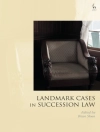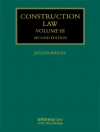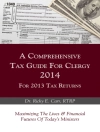عن المؤلف
Robert Heron Bork (March 1, 1927 – December 19, 2012) was an American judge, government official, and legal scholar who served as the Solicitor General of the United State...
عن المؤلف
Robert Heron Bork (March 1, 1927 – December 19, 2012) was an American judge, government official, and legal scholar who served as the Solicitor General of the United States from 1973 to 1977. A professor at Yale Law School by occupation, he later served as a judge on the influential U.S. Court of Appeals for the D.C. Circuit from 1982 to 1988. In 1987, President Ronald Reagan nominated Bork to the U.S. Supreme Court, but the U.S. Senate rejected his nomination.
Bork was born in Pittsburgh, Pennsylvania. He pursued a legal career after attending the University of Chicago. After working at the law firm of Kirkland & Ellis, he served as a Yale Law School Professor. He became a prominent advocate of originalism, calling for judges to hew to the framers’ original understanding of the United States Constitution. He also became an influential antitrust scholar, arguing that consumers often benefited from corporate mergers and that antitrust law should focus on consumer welfare rather than on ensuring competition. Bork wrote several notable books, including The Antitrust Paradox and Slouching Towards Gomorrah.
From 1973 to 1977, he served as Solicitor General under President Richard Nixon and President Gerald Ford, arguing several cases before the Supreme Court. During the October 1973 Saturday Night Massacre, Bork became acting U.S. Attorney General after his superiors in the U.S. Justice Department resigned rather than fire Special Prosecutor Archibald Cox who was investigating the Watergate scandal. Following an order from the President, Bork fired Cox, his first assignment as Acting Attorney General. Bork served as Acting Attorney General until January 4, 1974 and was succeeded by Ohio U.S. Senator William B. Saxbe.
In 1982, President Reagan appointed Bork to the Court of Appeals for the District of Columbia Circuit. After Supreme Court Justice Lewis Powell announced his impending retirement, Reagan nominated Bork to the Supreme Court in 1987, precipitating a contested Senate debate. Opposition to Bork centered on his stated willingness to roll back the civil rights rulings of the Warren and Burger courts and his role in the Saturday Night Massacre. His nomination was defeated in the Senate, with 58 of the 100 Senators opposing his nomination. The Supreme Court vacancy was eventually filled by another Reagan nominee, Anthony Kennedy. Bork resigned his judgeship in 1988 and served as a professor at the George Mason University School of Law and other institutions. He also advised presidential candidate Mitt Romney and was a fellow at the American Enterprise Institute and the Hudson Institute prior to his death in 2012.












